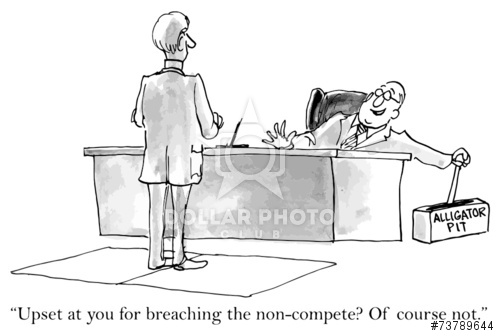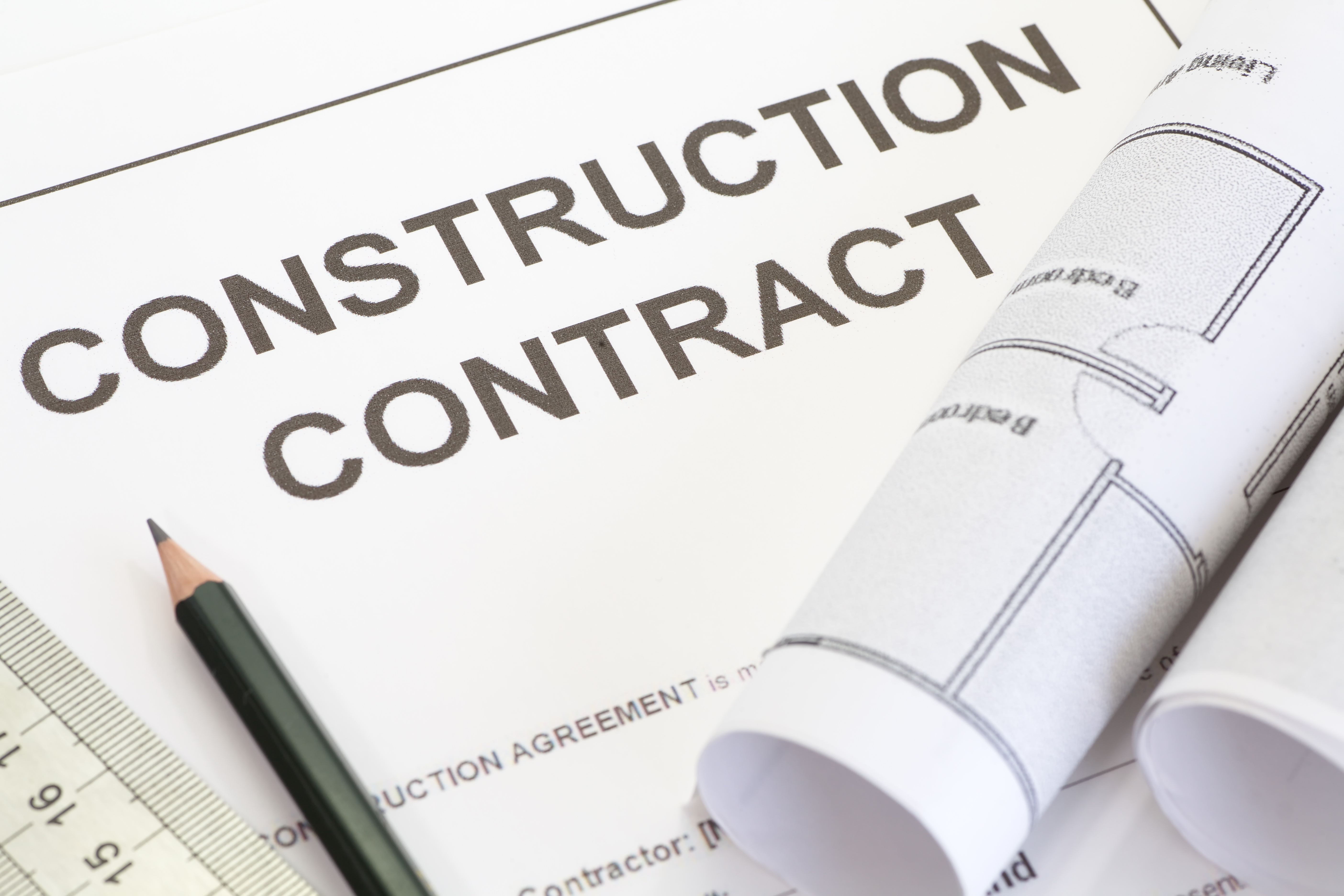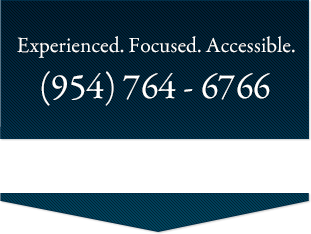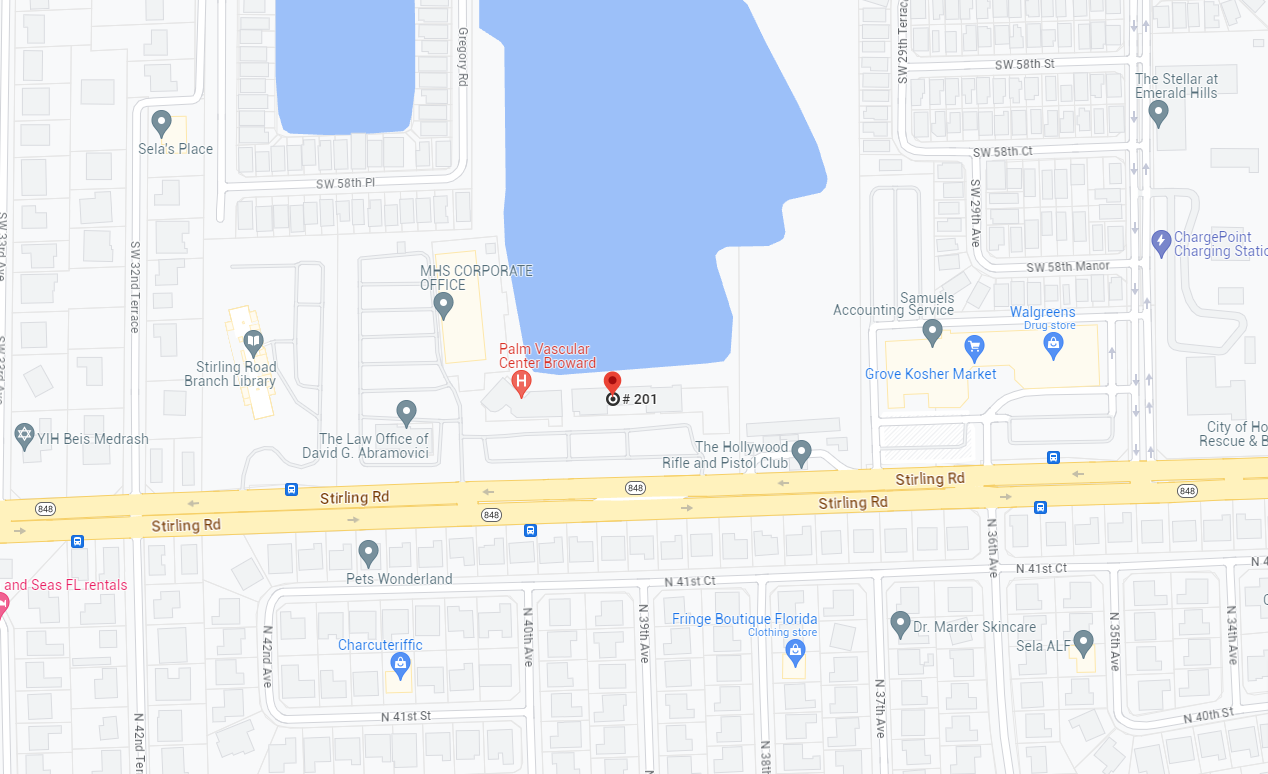New Requirements (and Potential Pitfalls) on Payment for Attorneys Representing Personal Representatives and Trustees
By: Brandon D. Cole
On June 21, 2021, Governor Desantis signed House Bill 625, which amends Sections 733.6171 and 736.1007 of the Florida Statutes regarding the compensation of attorneys representing Personal Representatives and Trustees in Florida (the “Amendments”). The Amendments, applicable to estate and trust administrations commenced on or after October 1, 2021, place additional disclosure requirements on attorneys that (i) want to use the compensation scales set forth in Sections 733.6171(3) and 736.1007(2) that are presumed to be reasonable and (ii) want to be compensated without a court order.
The statutory compensation schedule for an attorney representing the personal representative of an estate is as follows:
(a) One thousand five hundred dollars for estates having a value of $40,000 or less.
(b) An additional $750 for estates having a value of more than $40,000 and not exceeding $70,000.
(c) An additional $750 for estates having a value of more than $70,000 and not exceeding $100,000.
(d) For estates having a value in excess of $100,000, at the rate of 3 percent on the next $900,000.
(e) At the rate of 2.5 percent for all above $1 million and not exceeding $3 million.
(f) At the rate of 2 percent for all above $3 million and not exceeding $5 million.
(g) At the rate of 1.5 percent for all above $5 million and not exceeding $10 million.
(h) At the rate of 1 percent for all above $10 million.
§ 733.6171(3), Fla. Stat. The Florida Trust Code provides for attorney compensation at a rate equal to 75% if the same schedule.
Unless otherwise agreed, compensation based on the value of the trust assets immediately following the settlor’s death and the income earned by the trust during initial administration at the rate of 75 percent of the schedule provided in s. 733.6171(3)(a)-(h) is presumed to be reasonable total compensation for ordinary services of all attorneys employed generally to advise a trustee concerning the trustee’s duties in initial trust administration.
§ 736.1007(2), Fla. Stat. Although these schedules will continue to be presumed reasonable, attorneys will be required to make additional disclosures or risk inviting a challenge to the amount of fees based on the failure to make the required disclosures.
The Amendments insert substantially similar subparagraphs into both the estate and trust Statutes. The estate Statute states the following:
(b) An attorney representing a personal representative in an estate administration who intends to charge a fee based upon the schedule set forth in subsection (3) shall make the following disclosures in writing to the personal representative:
1. There is not a mandatory statutory attorney fee for estate administration.
2. The attorney fee is not required to be based on the size of the estate, and the presumed reasonable fee provided in subsection (3) may not be appropriate in all estate administrations.
3. The fee is subject to negotiation between the personal representative and the attorney.
4. The selection of the attorney is made at the discretion of the personal representative, who is not required to select the attorney who prepared the will.
5. The personal representative shall be entitled to a summary of ordinary and extraordinary services rendered for the fees agreed upon at the conclusion of the representation. The summary shall be provided by counsel and shall consist of the total hours devoted to the representation or a detailed summary of the services performed during the representation.
§ 733.6171(2)(b), Fla. Stat. The trust statute, section 736.1007(1)(b), contains substantially the same language. In addition to making these disclosures, the attorney must obtain a signed acknowledgement of the disclosures from the personal representative or trustee. § 733.6171(2)(c), Fla. Stat.; § 736.1007(1)(c), Fla. Stat.
Some attorneys charge fees that are not dependent on the statutory schedule and may assume that these disclosure requirements will not change their standard client intake documents. However, that is not the case, because the amendments also alter an attorney’s right to be paid without a court order. Section 733.6171(1) is amended to replace the mandatory “shall be entitled” language with language stating that attorneys “are entitled to reasonable compensation payable from the estate assets without court order,” but making payment subject to new Section 733.6171(2)(d). The same is true for Section 736.1007(1) of the Florida Trust Code.
The new Section 733.6171(2)(d) provides that “f the attorney does not make the disclosures required by this section, the attorney may not be paid for legal services without prior court approval of the fees or the written consent of all interested parties.” This requirement is the same for the attorney for a trustee. Therefore, even if an attorney is not relying on the statutory fee schedule, the attorney must make the new disclosures if the attorney wants to be paid without the necessity of seeking a court order or the consent of all the interested parties or qualified beneficiaries.
In addition to making the statutory compensation scale subject to the new disclosures, the amendment also subjects the fee for rendering extraordinary services to the disclosures and adds the complexity of the estate as a factor in determining the attorney’s compensation for extraordinary services. § 733.6171(3), (4), Fla. Stat. The same is true for the amended trust statute, which subjects the compensation for an attorney’s ordinary, extraordinary, and limited services (as defined by a retaining agreement) to the new disclosures. § 736.1007(2), (3), and (5), Fla. Stat
If an attorney does not make the required disclosures, not only will the attorney need to seek a court order or the consent of the interested persons or beneficiaries, the attorney also opens his or her compensation up to challenge based on “[a]ny agreement relating to the attorney’s compensation and whether written disclosures were made to the personal representative in a timely manner under [certain] circumstances[.]” § 733.6171(5)(i), Fla. Stat.; § 736.1007(6)(i), Fla. Stat. While it is possible that a judge will award the attorney the full fee over an objection, the potential for additional litigation over the attorney’s compensation based on nondisclosure adds unnecessary risk and complexity to the estate or trust proceedings.
Practitioners should make modifications to their standard client intake documents sooner, rather than later, as these changes impact administrations commenced on or after October 1, 2021. Any estate and trust administrations based on unmodified client intake documents should be commenced prior to October 1, 2021. If commenced on or after October 1, 2021, the disclosure should be made, and a signed acknowledgement should be obtained from the personal representative or trustee.
If you are nominated to be a personal representative or trustee and are seeking to commence or continue the administration of an estate or trust in Broward, Miami-Dade, Palm Beach County, or anywhere else in Florida, please contact a Broward County Probate & Estate Administration lawyer by calling (954) 764-6766 or by completing the contact form on this page.
Garnishing a Judgment Debtor’s Interest in an Estate
By: Brandon D. Cole
At long last, you emerge victorious in your lawsuit, holding your judgment high. One problem, the judgment debtor does not have sufficient assets to satisfy it. However, you learn that the judgment debtor has an interest in an ongoing estate proceeding and will receive a distribution upon the conclusion of the proceeding. You rush out, have the writ of garnishment issued, and serve it on the personal representative. In the words of Lee Corso, “not so fast my friend.” When it comes to seeking to garnish a beneficiary’s interest in an estate, the Florida Probate Code requires an additional step prior to permitting the garnishment of an estate’s assets.
Over a century ago, the Florida Supreme Court, in Post v. Love, 19 Fla. 634 (1883), held that an executor of an estate could not be required to answer a writ of garnishment by a creditor of an heir. The court’s decision was based on (i) the text of the garnishment statute, which limited the garnishment of intangible personal property to debts due from third-parties, and (ii) the concern that allowing estates to be garnished would cause “great confusion and expense” in their administration. Id. at 642.
In 1967, the legislature amended Section 77.01 of the Florida Statutes to allow the garnishment of “intangible personal property of [the] defendant in the possession or control of a third person.” §77.01, Fla. Stat. As the Fourth District Court of Appeal noted in Murray v. Nationsbank of Florida, N.A., 846 So.2d 548 (Fla. 4th DCA 2003), this change in the garnishment statute now permits a beneficiary’s interest in an estate to be garnished. The Murray court reasoned that, because the right to inherit from an estate is a type of intangible personal property, the expansion of the categories of property that can be garnished under the 1967 amendment to the garnishment statute included a beneficiary’s interest in an estate. Id. at 551. But the revised garnishment statute only allows a beneficiary’s interest to be garnished; what about the additional step mentioned above?
The predecessor to the Florida Probate Code, the Probate Act, prohibited “any levy [] against any property, real or personal, of the estate of a decedent.” Brown v. Sweat, 6 So.2d 538 (Fla. 1942). However, the current statute, Section 733.706, does not contain such a blanket prohibition, but, instead, provides that:
Except upon approval by the court, no execution or other process shall issue on or be levied against property of the estate. An order approving execution or other process to be levied against property of the estate may be entered only in the estate administration proceeding.
733.706, Fla. Stat. Thus, the current statute allows a writ of garnishment to issue against the property of an estate only if the probate court enters an order approving issuance of the writ.
The Murray court discussed two additional points that should be addressed in seeking an order approving the issuance of a garnishment. First, the probate court should make a finding that the garnishment will not interfere in the administration of the estate. Murray, supra, at 552. Because the probate court is not obligated to approve the issuance of a writ of garnishment against the estate, it is the responsibility of the party seeking approval to show that the garnishment will not be intrusive or disruptive to the estate administration. If the garnishment will be disruptive and cause the estate’s expenses to increase unnecessarily, it not only affects the interest of the judgment debtor, but the rights of all of the interested parties to the estate. Second, the probate court must control any payments from the estate’s assets. Id. This is important because Section 733.706 requires not only approval of the issuance of process, but also approval of the execution against the estate’s assets.
Let us summarize the process of garnishing property of an estate. First, a creditor must obtain its judgment. Second, the creditor must file a motion in the probate proceeding requesting the entry of an order (1) permitting a writ of garnishment, against someone to whom the estate is indebted, to be issued against and served on the personal representative of the estate, (2) finding that the garnishment will not interfere with the administration of the estate, and (3) stating that the probate court will control any payments from the estate assets. Third, the creditor must follow the standard statutory procedure for garnishment before the court from which the garnishment issued and serve the garnishment on the personal representative. Finally, the creditor must seek the approval of the probate court to execute against the judgment debtor’s interest.
The creditor should be aware of two relevant issues. First, the execution may not be approved until the personal representative is ready to distribute the estate’s assets and close the estate. Second, if the garnishment is served on the personal representative before a determination can be made of the amount due the judgment debtor, the personal representative may not be able to state in his or her answer whether the estate is indebted to the judgment debtor or list the property of the judgment debtor in the personal representative’s possession or control. The impact of a premature garnishment on a personal representative in Florida has not yet been determined by the appellate courts.
If you are a judgment creditor, and you are seeking to garnish the judgment debtor’s interest in an estate in Broward, Miami-Dade, Palm Beach County, or anywhere in Florida, please contact a Broward County Probate & Estate Administration lawyer by calling (954) 764-6766 or by completing the contact form on this page.
Resolving Business Disputes Between Shareholders
 Just like marriage, business partners enter into their relationship full of excitement and hope for the future. Starting, maintaining, and growing a business requires commitment and a lot of hard work and, as the business grows, changes, or struggles, ultimate success of the business often requires the partners to work together, and compromise on various issues relating to the business. Unfortunately, many business partner relationships end up irretrievably broken, and the business partners find themselves in a situation where they must end their business relationship, but where there are business assets that must be accounted for and properly distributed.
Just like marriage, business partners enter into their relationship full of excitement and hope for the future. Starting, maintaining, and growing a business requires commitment and a lot of hard work and, as the business grows, changes, or struggles, ultimate success of the business often requires the partners to work together, and compromise on various issues relating to the business. Unfortunately, many business partner relationships end up irretrievably broken, and the business partners find themselves in a situation where they must end their business relationship, but where there are business assets that must be accounted for and properly distributed.
Under Florida law, whether the business is a corporation, limited liability company, joint venture, or partnership, there are numerous ways to end a business relationship. If the business is successful, but the business partners are not able to continue their business relationship any longer, the best option may be for one or more of the partner(s) to buy out the interest held by the other partner, and continue operation of the successful business. It also may be a good option for one or more of the partner(s) to purchase enough of the interest held by the other partner to obtain controlling interest. This option would permit the successful operation of the business, but would not require the “other” partner to completely forfeit or sell his rights to all future profits of the successful business.
Another option is dissolution of the business. Under this option, the business entity would be dissolved, and the assets of the business would be distributed to each partner in accordance with his or its interest in the business (or in the particular asset). Each business partner would share in the profits (or losses) of the company, and the business would cease to exist. While this option could be utilized for a successful or unsuccessful business, it often makes most sense to dissolve an unsuccessful business.
A third option is sale of the business. Quite simply, the business partners could sell the business, and all of its assets, to someone else, and split the profits or losses in accordance with their interest.
Finally, as a fourth option, the business partners may partition the business, where the assets of the business would be sold or distributed as necessary to ensure that each business received its proportionate interest of the assets.
The proper, or best, method of resolving irretrievable business disputes between partners that desire to end their business relationship is unique to each business, as many factors would require consideration, such as the type of business relationship, the purpose of the business, the success (or failure) of the business, and the assets owned by the business, to name a few. Regardless of which method is chosen to terminate the business relationship, it is important to ensure that the sale, dissolution, stock-purchase, or partition of the business, and accounting of all business assets, is properly done under Florida law.
If you are a partner in a business relationship, for a business in any of Broward, Miami-Dade, or Palm Beach counties, that is irretrievably broken, and you need advice on the best method of legally ending the business relationship, please contact a Broward business lawyer for a consultation, or fill out the contact information on this page.
PACE: A Solution to the Prohibitive Costs of Sustainable Retrofits

Recently, the largest Powerball lottery (over $1.5 billion) in history was awarded to three “lucky” winners. Regardless of one’s feelings on the lottery, there is no denying that the winners of that Powerball lottery will be able to purchase, or fund, pretty much anything they could ever need or want. These lottery winners are not limited by cost. Rather, their only problem is figuring out what they should buy next.
Unfortunately, when considering whether to implement sustainability improvements for their home or business, most property owners (residential and commercial) have the opposite problem. Of course, in addition to the environmental benefits, the non-environmental benefits of retrofitting an existing building are well-documented: the building will increase in value, be less costly to maintain (as water and electricity bills decrease), last longer, and sustainability improvements will, overall, contribute to a better, healthier, more comfortable environment for people to live and work. The overwhelming prohibitive factor is cost. The upfront costs of sustainability improvements—such as solar panels, LED lighting, green roofs, or air-movement HVAC systems—are generally more expensive to install, yet they provide significant financial benefits down the road.
Property Assessed Clean Energy (“PACE”) is a federal program—recently approved by the Florida Supreme Court—that essentially allows property owners to finance the upfront costs of sustainability measures, and allows the property owners to pay back those upfront costs through a small tax assessment on the property. PACE financing is available for nearly any property— commercial, industrial, single-family residential, condominiums, and non-profit. Quite simply, PACE financing provides all the benefits of retrofitting a building with sustainability improvements, without the single-biggest obstacle: cost.
PACE financing pays for 100% of the upfront costs of the retrofit project, and is repaid by the property owner with a small assessment added to the property’s tax bill. This assessment is often significantly less than the property owner was paying in utility bills. For example, if a property owner typically pays $400.00 per month on its electric bill, and receives PACE financing to retrofit its building for energy efficiency in the amount of $40,000.00, the tax assessment on the property would be approximately $200.00 per month over a 20-year period. The result is that the property owner’s electric bill would likely be reduced to $0.00, and the property owner would simply be paying for the tax assessment, with no electric bill whatsoever, thereby cutting its energy expenses in half. Furthermore, because PACE financing stays with the building, rather than the property owner, any unpaid assessments would transfer upon sale of the building, or, for a commercial property, could easily be passed on to tenants.
Now that PACE financing has been approved by the Florida Supreme Court, there will likely be many PACE projects moving forward in both Broward County and Miami-Dade County. If you own property in Broward, Miami-Dade, or Palm Beach, and you are seeking to determine whether PACE financing or retrofitting your property would be beneficial for you, please contact a Broward County sustainability lawyer by calling (954) 764-6766 or by completing the contact form on this page.
Enforcing Construction Liens: The Importance of Punctuality
“If you’re not early, you’re late.”—Vince Lombardi
While there are many different variations of exactly what the great Vince Lombardi stated regarding punctuality, his message on the importance of punctuality cannot be overstated. Punctuality is important in nearly every aspect of our lives. Punctuality can set the tone for our relationships, both personally and professionally, and could, perhaps, make or break a business deal. Punctuality has been said to be the “soul of business” (Thomas C. Haliburton). However, it is important to remember that the concept of punctuality is not limited to simply arriving at a place at the right time (or early), but, rather, about taking actions at the right time. For this reason, punctuality is, perhaps, most important in the legal realm, because failing to take specific actions at the right time could cause you to forfeit important legal rights.
In Florida, a contractor, subcontractor, or supplier has the legal right to place a lien on a project owner’s property when he or she doesn’t get paid; however, in order to preserve those rights, the contractor, subcontractor, or supplier must take certain actions at the right time. For example, a contractor that has a direct contract with the project owner may be able to simply file a Claim of Lien within 90 days after completing its final work at the project. But a subcontractor or supplier without a direct contract with the project owner must take additional steps, such as providing a Notice to Owner not later than 45 days after beginning work, or first supplying materials, at the project. Similarly, when the project is bonded, the subcontractor or supplier must provide a Notice of Nonpayment to the surety in order to claim rights under the payment bond. Failure to provide any of the notices within the required time periods, or to timely file a Claim of Lien, will cause the contractor, subcontractor, or supplier to forfeit their lien rights and, possibly, their ability to be paid for the work or materials provided to the project.
If you are a contractor, subcontractor, or supplier in Broward, Miami-Dade, or Palm Beach County, and would like to ensure that you are properly preserving your lien rights, then schedule a consultation with a Broward County construction lawyer by calling (954) 764-6766 or by completing the contact form on this page.
Understanding Your Rights Regarding OSHA Violations
It’s so frustrating. As a contractor, you not only have to make sure you complete your scope of work on a project in accordance with the contract documents, design drawings, specifications, and building codes, while keeping track of all change orders, payments, and scheduling issues; you also have to ensure that all OSHA safety regulations are met, and that all of your employees are in strict compliance with the regulations at all times. It only takes one mistake, shortcut, or oversight, and an OSHA Compliance Officer is lurking to pounce at the job site to write a citation. Of course, barring injury, the penalty for the first citation is usually minor—a relatively small fine and some required OSHA training or continuing education classes. After the first violation is on your company’s record, however, it’s the possibility of a second citation in the future that is worrisome, because the fines for a second violation can often exceed $10,000.00.
Due to the threat of significant punishment for a second violation, it is usu ally in a contractor’s best interest to challenge the first citation to prevent even a single blemish on the company’s record. Challenges to citations for what may initially seem like an open-shut OSHA violation can often be successful, because OSHA must prove that the violation actually occurred—rather, the mere fact that the contractor received a citation is not enough. In general, OSHA must prove the following: (1) the regulation that was allegedly violated is applicable; (2) the hazard actually existed; (3) an employee was exposed to the hazard; and (4) the employer knew, or should have known, of the violation. If OSHA fails to prove even one of these elements, the citation will be dismissed.
ally in a contractor’s best interest to challenge the first citation to prevent even a single blemish on the company’s record. Challenges to citations for what may initially seem like an open-shut OSHA violation can often be successful, because OSHA must prove that the violation actually occurred—rather, the mere fact that the contractor received a citation is not enough. In general, OSHA must prove the following: (1) the regulation that was allegedly violated is applicable; (2) the hazard actually existed; (3) an employee was exposed to the hazard; and (4) the employer knew, or should have known, of the violation. If OSHA fails to prove even one of these elements, the citation will be dismissed.
Regarding the first element, it is possible that an OSHA compliance officer cited the wrong regulation. For example, in a situation where a contractor bores a concrete core through a roof, and the core falls to the next lower level and injures someone, there may not be an OSHA regulation that specifically requires a contractor to take certain safety precautions to prevent the concrete core from falling through its own hole. However, because someone was injured, an OSHA compliance officer may write the contractor a citation for failing to provide adequate fall protection (or a similar regulation). Such a regulation would likely not be applicable, because fall protection regulations are intended to prevent objects from falling off the ledge of a higher level, not to prevent a concrete core from falling directly through the hole from which it was drilled.
Regarding the second element, if, for example, a contractor is cited for failing to provide cave-in protection, such as a trench box, after excavating a trench through rock or limestone, OSHA would not be able to prove its case, because the hazard of a potential cave-in does not actually exist. Cave-in protection regulations are intended to protect excavation workers from the potential hazard of the sides of a trench caving in. But where a trench is dug into solid rock or another type of extremely hard surface, the sides of the trench are also solid and not susceptible to any type of cave-in.
Regarding the third element, if, for example, an excavation includes a trench of varying depths, and the contractor failed to provide cave-in protection, OSHA would have to prove that an employee was actually in the portion of the trench that was greater than five feet in depth. Thus, if OSHA could prove only that an employee was in the trench somewhere, but could not show that the employee was in the deeper areas of the trench, OSHA would fail to prove its case.
Finally, regarding the fourth element, if a contractor makes every effort to ensure that his or her company and employees are in compliance with all OSHA regulations, but one of the employees goes rogue and refuses (or forgets) to comply with a particular regulation while you are away from the job site, OSHA would likely not be able to prove that the contractor knew or should have known of the violation.
If you are a contractor in Broward, Miami-Dade, or Palm Beach County, and need legal representation to challenge an OSHA citation, then schedule a consultation with a Broward County construction lawyer by calling (954) 764-6766 or by completing the contact form on this page.
“My Word Is My Bond”: Are Oral Contracts Enforceable?
In general, a contract does not have to be in writing to be enforceable. Of course, a written contract is usually best, because it clearly sets out the purpose of the contract and the obligations of each party under the contract. However, in today’s business world, people often make oral agreements believing and intending that both parties to the agreement will honor their obligations. Perhaps one of the parties to the agreement was highly recommended by a friend, and the other party didn’t believe a written contract was necessary. Or perhaps the agreement was so obviously beneficial to both parties, that neither party comprehended a potential breach of the agreement. Regardless of the reasons why the agreement was not put into writing, an oral contract is equally enforceable as a written contract under most circumstances.
In Florida, the requirements of a valid contract, whether oral or written, are always the same: offer, acceptance, consideration and sufficiently specific terms. Nevertheless, a written contract is usually preferable, because it is much easier to prove the existence of a valid written contract. When one seeks to prove a valid oral contract, one generally needs to look at things such as letters and e-mails between the parties, the conduct and actions of the parties – e.g., payments made or services performed, and other aspects of the circumstances, such as the relationship of the parties. Even so, some oral contracts are not enforceable under Florida law except under limited circumstances. Examples of these types of oral contracts include: agreements made for the sale of land; residential leases for a period longer than one year; and contracts that will take more than one year to complete. For these types of contracts, the agreement must always be reduced writing.
If you need assistance with enforcing an oral contract (in Broward, Palm Beach, or Miami-Dade County), please call our law firm in Fort Lauderdale at (954) 764-6766 to schedule a consultation with a Broward County business lawyer.
Florida Non-Compete Agreements: Is A Referral Source A Legitimate Business Interest?
Restrictive covenants in an employment contract, such as non-compete or non-solicitation clauses, are disfavored under Florida law. Generally, Florida is a right-to-work state, and Florida courts have explained that any contract that attempts to restrain or limit a person’s right or ability to work must be strictly construed. However, that does not mean that restrictive covenants limiting or prohibiting post-employment competition are not enforceable. To the contrary, when a restrictive covenant is written in compliance with Florida law, it can be a very powerful tool for an employer to protect its legitimate business interests.
 Section 542.335 of the Florida Statutes provides that restrictive covenants prohibiting or restricting competition must be: (a) reasonable in time, area, and line of business; and (b) designed to protect the employer’s legitimate business interests. While the Statute defines “legitimate business interests” as including (among other things) trade secrets, substantial relationships with specific prospective or existing customers, and specialized training, questions often arise as to whether the interests that the employer is trying to protect are actually “legitimate” under Florida law.
Section 542.335 of the Florida Statutes provides that restrictive covenants prohibiting or restricting competition must be: (a) reasonable in time, area, and line of business; and (b) designed to protect the employer’s legitimate business interests. While the Statute defines “legitimate business interests” as including (among other things) trade secrets, substantial relationships with specific prospective or existing customers, and specialized training, questions often arise as to whether the interests that the employer is trying to protect are actually “legitimate” under Florida law.
When interpreting and applying Section 542.335, one issue that occasionally arises is whether “referral sources” qualify as legitimate business interests entitled to protection in an employee non-competition or non-solicitation agreement. While this issue is not entirely settled in Florida, a recent opinion by the Fourth District Court of Appeal (i.e., the appellate court presiding over Broward County and Palm Beach County) provides some insight.
In Infinity Home Care, LLC v. Amedisys Holding, LLC, 40 Fla. L. Weekly D 1929 (Fla. 4th DCA, Aug. 19, 2015), the Fourth District held that referral sources for home health services are a legitimate business interest entitled to protection under a non-compete and non-solicitation clause in an employment contract. In so holding, the Court observed that the home health care industry depends on referral sources as a substantial source of business, and that the former employee was specifically hired because of her substantial relationships with particular referral sources. Thus, the Court concluded that, with respect to the home health care industry, referral sources are protectable legitimate business interests.
Although the Infinity Home Care, LLC case specifically addressed Section 542.335 within the context of the home health services industry, the Court’s reasoning in that case can be applied to many other industries to determine whether a “referral source” is likely a legitimate business interest that is the proper subject of a non-competition/non-solicitation agreement. For example, where the industry relies on referral sources as a substantial source of its business, or where the employee was specifically hired, in large part, because of his or her connections, “referral sources” are likely a legitimate business interest that may be afforded protection under Section 542.335.
If you need clarification regarding whether a non-compete/non-solicitation clause in a Florida employment contract is enforceable in Broward, Miami-Dade, or Palm Beach County, please call our law firm in Fort Lauderdale at (954) 764-6766 to schedule a consultation with a Broward County business lawyer.
Repairing Construction Defects at Your Home
Whether you are building a home, adding on to your home, or repairing your home (such as replacing your roof), it is important to you that the construction is done properly. There is nothing more frustrating than discovering that the construction was defective, and now, instead of enjoying your home,  you are left with more problems than you ever wanted. As a Florida construction lawyer, and a homeowner, I understand how frustrating these situations can be. If you are in a similar situation, it is important that you follow certain procedures under Chapter 558 of the Florida Statutes before you repair or fix the defective conditions.
you are left with more problems than you ever wanted. As a Florida construction lawyer, and a homeowner, I understand how frustrating these situations can be. If you are in a similar situation, it is important that you follow certain procedures under Chapter 558 of the Florida Statutes before you repair or fix the defective conditions.
First, you must provide the builders or contractors with written notice of the defective condition, and give them an opportunity to inspect the condition and possibly repair the defect. Second, the builder or contractor may need to notify other subcontractors or suppliers to inform them of the defective condition. Third, every person that has been notified of the defective condition at your property must respond to you within a certain amount of time. In their responses, the builders, contractors, subcontractors, or suppliers may admit that they made a mistake and offer to repair the defect. This is, of course, the best case scenario. However, more often than not, the builders or contractors may tell you that the defect was not their fault, and refuse to take any action to repair the defect. This leaves you with a defective condition at your home that needs repair, but with nobody accepting the responsibility to actually repair or fix it.
If you have taken the proper steps under Florida law, then you should be able to hold the builder or contractor responsible for the repairs to your home. You deserve to have the construction or repairs at your home completed properly, without defects. If you live in Broward County, Miami-Dade County or Palm Beach County, and you need assistance with correcting or repairing a defective condition at your home, please contact a South Florida construction lawyer by calling (954) 764-6766.
Is a “Pay-When-Paid” Provision in a Construction Contract Enforceable?
“I can’t pay you until I first get paid by the owner.” This phrase, or something similar, is used too often in construction projects in South Florida, throughout Broward, Miami-Dade, and Palm Beach Counties, by general contractors seeking to avoid payment to a subcontractor before the general contractor has received payment from the project owner for work completed by the subcontractor. Often, the general contractor will point out a clause or provision in the subcontract and claim it has the right to refuse payment to the subcontractor until it receives payment from the owner. This type of subcontract clause is known as a “pay-when-paid” provision or “contingent payment” clause.
Under Florida law, “pay-when-paid” provisions are not always enforceable. This is because Florida courts recognize that many subcontractors must receive payment for their work within a timely manner in order to remain in business. Simply put, the subcontractor has a direct contract with the general contractor,  not with the project owner, and when the subcontractor performs work at the project, the subcontractor deserves to be paid for that work. So, in circumstances where the project owner fails to pay the general contractor, the general contractor is often still required to pay the subcontractor.
not with the project owner, and when the subcontractor performs work at the project, the subcontractor deserves to be paid for that work. So, in circumstances where the project owner fails to pay the general contractor, the general contractor is often still required to pay the subcontractor.
In order for a “pay-when-paid” provision to be enforceable, and to effectively transfer the risk of the project owner’s nonpayment from the general contractor to the subcontractor, the subcontract terms must be absolutely clear that the subcontractor fully accepts the risk that the owner may not pay the general contractor, and understands that the subcontractor will be paid for its work only after the general contractor is paid. Unless the subcontract terms and provisions are absolutely clear that payment to the general contractor by the owner is a condition to payment for work performed under the subcontract, the “pay-when-paid” provision is likely not enforceable.
If you are a contractor in South Florida (Broward, Miami-Dade, or Palm Beach), and you are wondering whether a “pay-when-paid” clause in a subcontract is enforceable under Florida law, please call our law firm in Fort Lauderdale at (954) 764-6766 to schedule a consultation with a Broward County construction lawyer.







